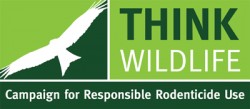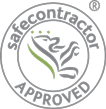Wasps
Wasp facts
- Wasps are from the order Hymenoptera.
- They are most commonly eusocial living together in a nest, but can be solitary or parasitic.
- Wasps can pick up pathogens (harmful bacteria) on their bodies when they feed on and walk across waste, which spread as they land on worksurfaces and other areas in your property.
- There are more than 100 pathogens associated with common wasps, including salmonella, staphylococcus and E. coli.
- Wasps are important insect-controlling predators and pollinators, but they can become a pest when they nest close to buildings.
- They can become particularly aggressive in late summer and autumn, when the colony stops breeding and workers leave the nest in search of sugary foods.
What you can do
- Wasps are attracted by any food residue, particularly with a high sugar content.
- Clean up any spills immediately.
- Empty bins frequently.
- Shut doors and windows.
- Wasps are attracted by any food residue, particularly with a high sugar content.
If you have a wasps’ nest, we will...
- Treat the entrance of the nest with a lance and/or access equipment using a powder insecticide.
- This should kill the nest within 24 hours (we will retreat any nests that have ongoing activity).
- It is not possible to treat nests when it is windy or raining.
- If the wasps’ nest is not on your property or inaccessible, we can use special traps to lure them away from you!
- Treat the entrance of the nest with a lance and/or access equipment using a powder insecticide.
ENQUIRE NOW
ENQUIRE NOW







